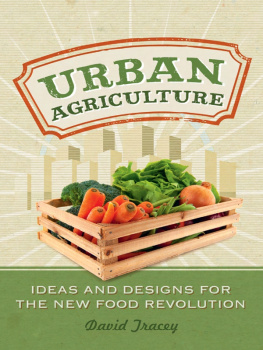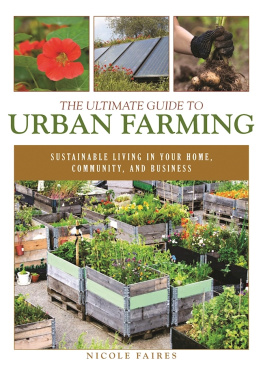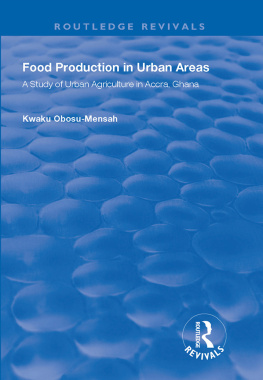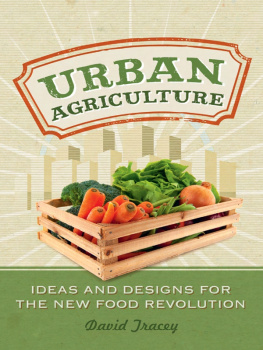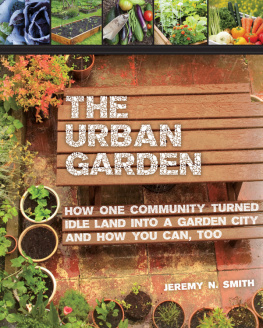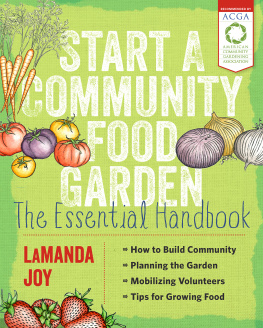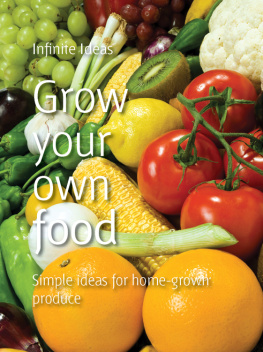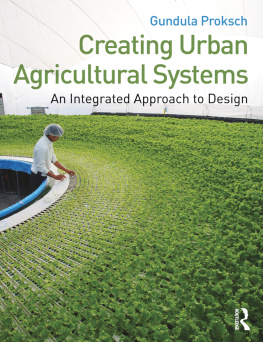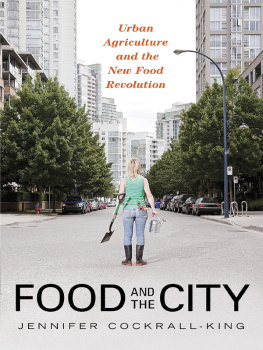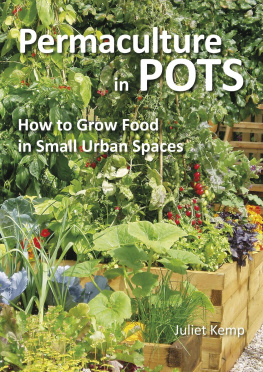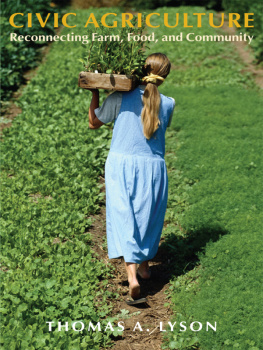Contents
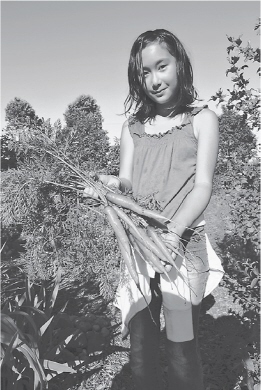
The future of urban farming looks bright.
The city of the future is green and delicious.
It is also creative and busy and messy and fun and beautiful although the last two points were lost on the residents of the Vancouver waterfront neighborhood where I recently tried to lead a public meeting.
I was there to explain a proposal for a community garden that was to be tended by neighbors from a world of backgrounds. It was part of a government-funded program to help immigrants and Canadian-born residents build a more welcoming society by growing organic food together.
I figured it would be an easy sell because it was about food and came with a feel-good bonus. At least 40 percent of the gardeners were to be foreign-born (matching the population of the downtown peninsula) and all were to attend workshops on racism, intercultural communication and inclusive group governance. Behind the proposal was the idea that Vancouvers visible success as a multicultural city wasnt telling the whole story. It can take years for newcomers to Canada to feel a sense of belonging. So bringing a diverse group of immigrant and Canadian-born residents together to speak the same language vegetables was an experiment in social harmony. It would help transform Vancouver from a mere multicultural city, where you might wave to the Punjabi neighbors whose names you can never recall, to an intercultural city, where you actually know who they are and maybe even care about them because theyre your friends and youre going to see them at the next block potluck or community center canning workshop or neighborhood food network meeting.
But first we needed land.
We werent asking for much: a narrow strip of grass in a public park behind two fenced tennis courts above a much larger lawn beside the sea. The strip had space for about twenty food plots and a few fruit trees and berry bushes. Nothing that would turn back the tide of the industrial food system, but enough to support a worthy program aimed at combining the new food politics with community engagement.
Except that this particular community must have misread the notice. They acted like wed called for community enragement. Judging by the aggressive way they strode into the room, glaring, I sensed I was in for a long night. Canadian decency meant they at least waited in turn to lambast the proposal and anyone like me who would dare support it, but it was like a tar-and-feathering without the tar and feathers. Not that they couldnt have afforded them. Condos in the towers overlooking that stretch of the water sell for more than a million dollars.
First to speak was a fifty-ish woman in jogging shoes. How dare you come into our neighborhood and suggest something like this? she demanded. Where do you live anyway?
I was about to answer when a short man with a congenial grin interrupted. I used to be a farmer so I know all about growing food, he began, briefly lifting my spirits. When I heard about this community garden thing I took a drive around town, to see what they looked like. He turned to me and shrugged. Theyre ugly. No offense. Then back to the crowd: But they are.
We have a wonderful park already, a woman in a fashion tracksuit announced. But this? This would turn it into a hellhole.
And so it went, each speaker explaining how awful a community garden would be for that site while the rest nodded and harrumphed in support. I fixed a smile on my face and settled in for a rout. Then a brown-skinned man entered in a wheelchair. At last, I thought, the reinforcements are here, and none too soon. I was wondering how to mention the fact that raised planting boxes would make growing food accessible for everyone, when it came his turn to speak.
Thees plan ees terri-ble, he said. An Iranian couple behind him nodded vigorously in agreement. I kept my frozen smile as the next woman to speak called out from the side.
Why we would need an intercultural garden anyway? she asked as if it were some kind of disease.
I gestured to the table in front of me where someone (me) had dropped an issue of that days free metro daily. The cover story was about violent attacks on gays and ethnic minorities. The headline read, Vancouver #2 Hate City.
But they werent interested in news. You cant just waltz into our neighborhood out of the blue with this kind of thing, someone declared. It was the woman with jogging shoes. Dont you even know you need to do a public consultation?
I swept an arm to indicate me, her and the rest of the crowd, then held up my palms: wasnt this a public consultation? Unfortunately the gesture didnt include the city official who had organized the event and sat with me at the start of the deluge, but then had to leave for a more important meeting.
We put up posters months ago, I explained. We held five information sessions for people to learn more about it, including one right here in this community center. We had two larger town meetings for anyone interested to come talk about it and say how theyd like it go. Residents told us they were interested in having a community garden, and this was one of the possible sites.
More scoffing, more accusations of a plot to ruin their lives. I wondered how long a man could keep a smile on his face before pulling a muscle. A young couple arrived pushing a stroller. Great, I thought, now I can learn how many ways a carrot might harm a child. But they turned out to be all for it. The father, in a quiet voice, said, Nobody uses that strip of grass anyway, do they? We could use it to help kids learn where their food comes from. You know what I mean?
I did, but waited for someone else to say it. They turned instead to watch the entrance of a tall, tanned, white-haired man wearing a pinstriped suit worth more than my car. He explained, in lawyerlike fashion, why the proposal and the process itself were both flawed. When I didnt immediately agree, he explained it again. Then a third time. If I were on a jury, I thought, still smiling, I might rule against him just for being redundant, or maybe because of the suit.
The couple with the stroller slipped out, which was unfortunate because they would have had an ally in a short Asian woman who insisted on being heard even as others tried to interrupt. I support this, she said looking from one blank face to another. I think a community garden is a good idea. She had to raise her voice to get above the grumbling. We can grow food in the city. Why not? More healthy! Why should we have to get all our food from far away? We can grow ourselves. Its good for you! Good for the community! Something to do together!
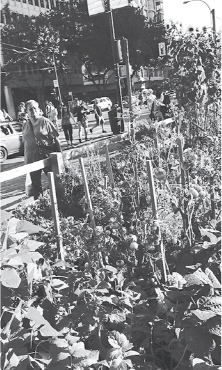
Cant we and crops all just get along?
Youll never get away with it, the woman in jogging shoes interrupted, looking at me. Do you know how much I pay in property taxes? Where do you live anyway?
I cant say I was surprised later when city staff, citing neighborhood opposition, turned down the proposal. I didnt take it personally. You win some, you lose some. But the neighbors reactions still bothered me.
Was the idea of a community growing food together really so outrageous?
Was the sight of crops in an urban setting really that offensive?
If a modest proposal for a small food garden in an unused stretch of a park could generate that much heat, what hope did we have in our increasingly crowded cities for urban agriculture?
I took a little comfort in believing this crowd was not representative of the city as a whole. Someone told me they had also come out against a plan for an elementary school because who knew? it might attract youth.
Next page
